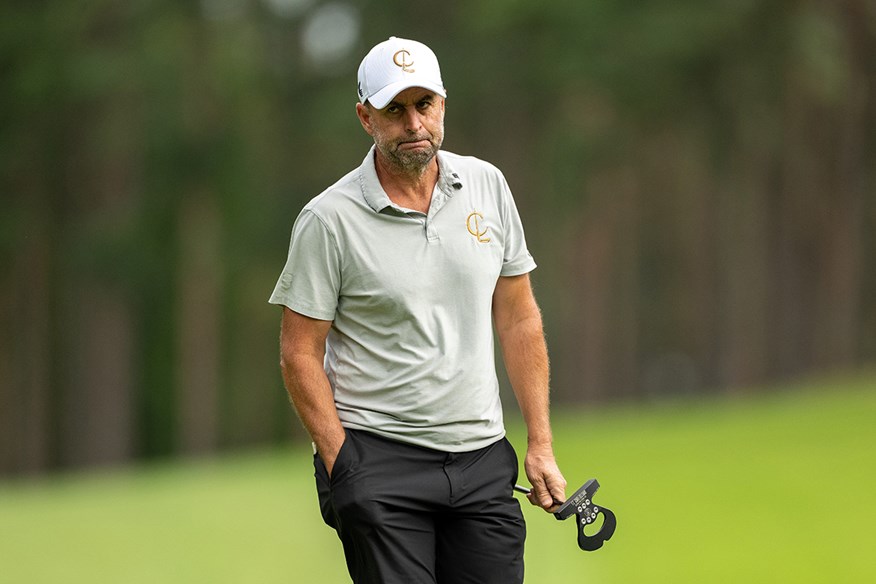Richard Bland: ‘I want to retire from the game – I don’t want the game to retire me’
Last updated:
After securing his LIV status for another season, Richard Bland sat down with Michael Catling to discuss his deal with the Saudis, the blocks being imposed on him by the DP World Tour, and why retirement is edging closer.
Richard Bland is a compelling man to interview. He’s not interested in PR spin, nor is he that bothered about reading from a well-worn or pre-prepared script. Ask him why he joined LIV Golf and he doesn’t dress it up. He’s not pretending it was about legacy or a burning desire to grow the game. He’s honest – it was about the money. And at 52 years of age, after a career spent grinding on the European Tour for relatively modest returns, he makes no apology for that.
“That was one of the overriding reasons why I came to LIV,” he says now. “I had the opportunity to make the rest of my life how I wanted it to be. I think anybody at my age would have done the same. It’s very easy to take the moral high ground when that opportunity is purely hypothetical.”
Bland knows not everyone approves of LIV’s riches, its disruption of the game or the alleged sportswashing involved in its rapid rise. But he’s not losing sleep over his critics. For more than two decades, Bland has been the guy you root for because of his backstory.
He was golf’s iron man on the DP World Tour — battling to keep his card almost every year, before finally breaking through with his first win on his 478th start at the 2021 British Masters. But even then, the rewards didn’t match the effort. LIV changed that overnight. The offer to join was too good to turn down, with guaranteed riches, fewer events, and more time to enjoy the rewards.
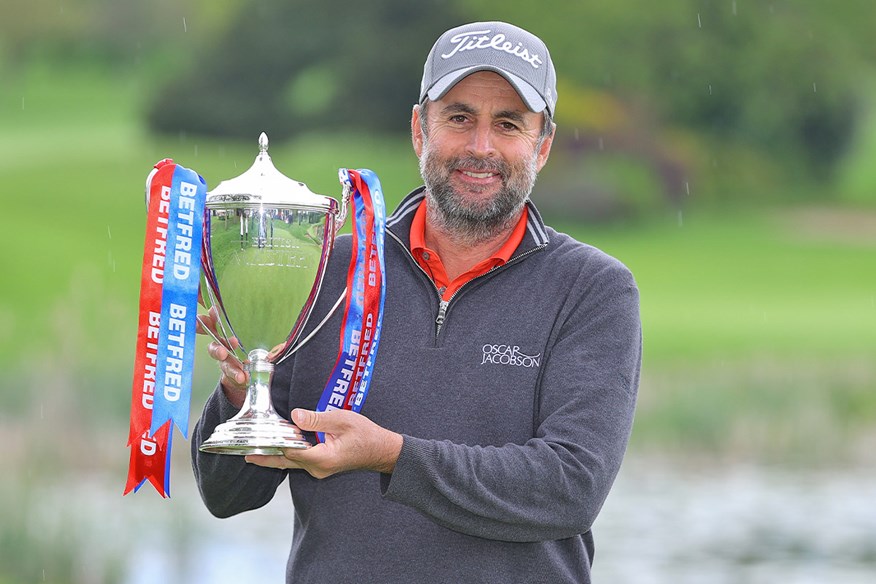
He’s now in the position where he could retire this year and never worry about money again. Whether he plans to or not – as he has intimated in the past – formed the basis of our conversation, where no questions were off-limits.
What followed was an unusually candid exchange, revealing not just the regrets and reasons behind some of his decisions, but how he feels some of the game’s power brokers are damaging the sport he’s given his life to…
Let’s start towards the end rather than the beginning of your career. It took 478 starts before you won on the DP World Tour. I’m sure you’ve thought about that moment thousands of times. Was it better than you imagined it would be?
The overriding feeling was more satisfaction than anything, knowing that I can do this. I mean, I knew that before… but until you cross that line, there is always that seed of doubt. As I look back on it now, where I am and what has followed in the second half of my career, would it have happened if I hadn’t won the British Masters? Who knows, but it certainly was a big part of what came for me. And that’s probably the thing I am most proud of, the level that I’ve been able to stay at for a sustained period of time.
For four years, I’ve been able to keep my level up and go on to bigger and better things. It would have been easy to fade away into the background, so I’m super proud that I’ve been able to stay fairly relevant.
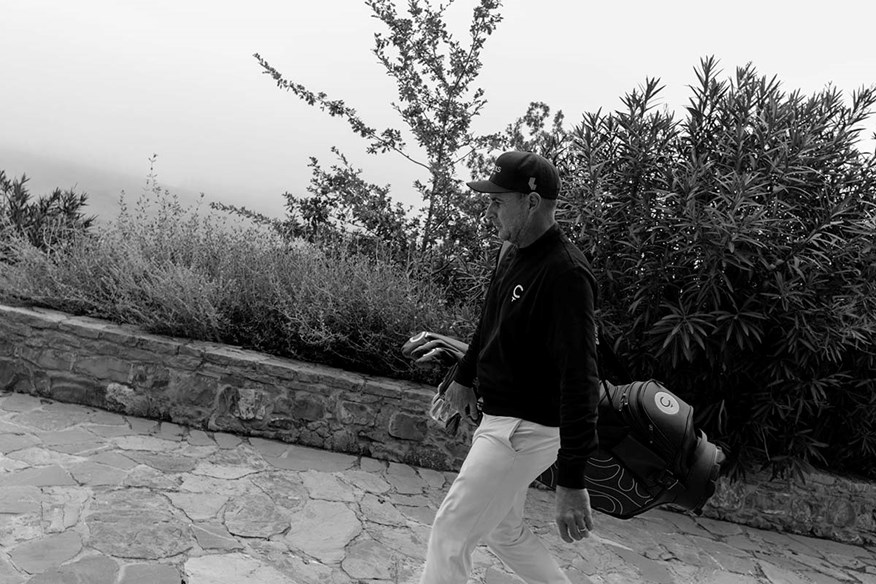
When you look back on how your career has panned out, did you expect to get more out of it, or have you exceeded your own expectations?
When I was growing up, just getting to the DP World Tour – or the European Tour as it was back then – was kind of like your dream. And then once you’re there, of course you want to win. You want to play in majors. It just goes in levels. But I’ve got no regrets of what I was doing. I worked hard.
If I was going to do everything again, yes, maybe I would have worked slightly harder on the mental side of the game. But then that was never really regarded as working on your game. When I first came on tour, if you told someone you were seeing a psychologist, they’d look at you a bit funny. So yeah, that probably held me back a little bit, getting in my own way, and wanting it too much.
Were you guilty of thinking about the outcome when you were in contention coming down the stretch?
Of course. And then you’re not fully focused on the job in hand. I think that’s what separates the best players; for them, it’s a very clear process. They know the outcome will take care of itself. That’s the main thing that I did that Sunday at the Belfry as best I could. My mind still wandered here and there, but I was so much better at bringing myself back to the present and not thinking about my winner’s speech when I was standing on the 12th tee, which I had probably been guilty of doing in the past.
A lot of people look at the life of a golfer and think you’re all living the dream. But there’s another side that people don’t see, where golfers who are lower down the rankings are struggling to pay bills because they’re missing cuts every week. How did you deal with that period when you were fighting to keep your card?
It’s tough, so tough. I was always good at not trying to put myself under too much financial pressure. I didn’t buy my first property until I knew that I could afford it. I was still living with my parents when I was like 28, 29. I had only just got on tour at that stage. I had played Challenge Tour for a couple of years, but I wasn’t making enough money to afford my own place. So why put myself under that pressure?
I figured the last thing I needed was to be holing six-foot putts to make a cut, knowing that if I miss, I’m probably going to struggle to play next week. That’s pressure nobody needs. So yeah, I’m not an overly extravagant kind of guy even today. I’m in a much better position now, but I just like the simple things in life. I don’t just buy stuff on a whim and I think that’s a good thing. I appreciate everything that I do have now because I know how hard I’ve had to work for it and the tough times that I’ve been through.
What were the toughest times for you?
The toughest was when I lost my card in 2017. I was 45, 46 years old. It was like, “Wow, OK what do I do now?” I was really at a crossroads.
What were you thinking about at that point?
The thought of, “Can I get back to where I know I can get to?” You’re almost starting at the beginning again and there are no guarantees that you’re going to come out of Challenge Tour. But when you’ve been on tour as long as I have, you realise that one year doesn’t make you a bad player.
I also knew that if I played the way I know I can play, I’d get back to the DP World Tour. That’s no disrespect to any other players that play Challenge Tour; that’s just the belief I had in myself. So in the end it was an easy decision to play Challenge Tour and get my head down.
We were playing in the back end of nowhere, sharing rooms and hire cars. We were all trying to do things as cheaply as we could possibly do it because the financial reward was not there. It was hard, but my sole purpose was to get one of those cards.
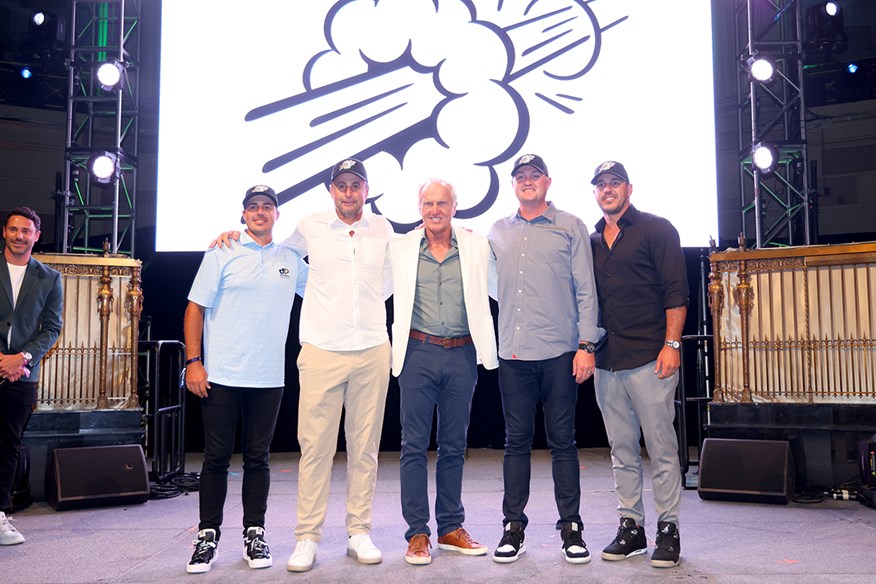
You gained a lot of respect for being so open about your reason for joining LIV and the money being a primary motivator. How did they approach you?
They didn’t. I remember I was playing the WGC Match Play in Austin in 2022. In my group matches, I played Bryson, Talor Gooch and Lee Westwood, who I’ve known for 35 years. We go way back and played amateur golf together for England.
We were walking down the second fairway and at that time I was 58th in the world or something like that. Lee asked if LIV had approached me yet? I was like, “Why on earth would they want to talk to me?” But he said, “Blandy, you’re top 60 in the world, they’re going to want to talk to you.”
I still didn’t believe they actually would, but sure enough, the guy who was looking after a few things for me started the conversation and they offered me a spot at the first event at Centurion.
Was there a signing-on bonus?
I never signed a contract. As part of my yearly contract that I’m on now, there’s no multi-year deal. I never signed for multi-millions of dollars like people said I did, I never received a penny. Every single year I’ve had to earn my spot [by finishing] top 24. It was slightly different the first year actually, I managed to negotiate it so it was like a top-35 finish, but I’ve always had to earn my place at LIV. But I’m glad I played with Lee that day because maybe the opportunity wouldn’t have come around otherwise. He planted the seed.
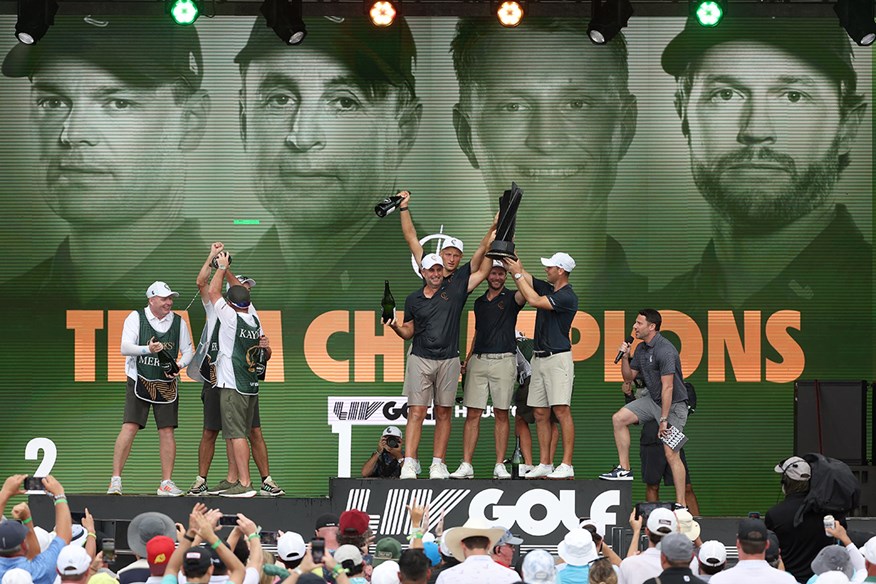
So how much has your life changed since joining LIV?
It hasn’t really. I’ve done quite well on LIV, but it hasn’t changed who I am. All it’s done is afford me the chance to call it quits on my terms. I haven’t got to worry too much about my future now. I don’t need to go and do something else [if this all fails]. So in that respect, it has changed. I can give back to my family more and help them. But how I live day to day, it hasn’t changed anything at all.
Was it a tough decision though, leaving the DP World for a new and divisive tour?
I love DP World. They gave me the opportunity to play golf at the highest level and I’ll always be so thankful for them, and I’ve still got many friends that play there. But when the opportunity of LIV came around at that stage of my career, I would have been mad to turn it down.
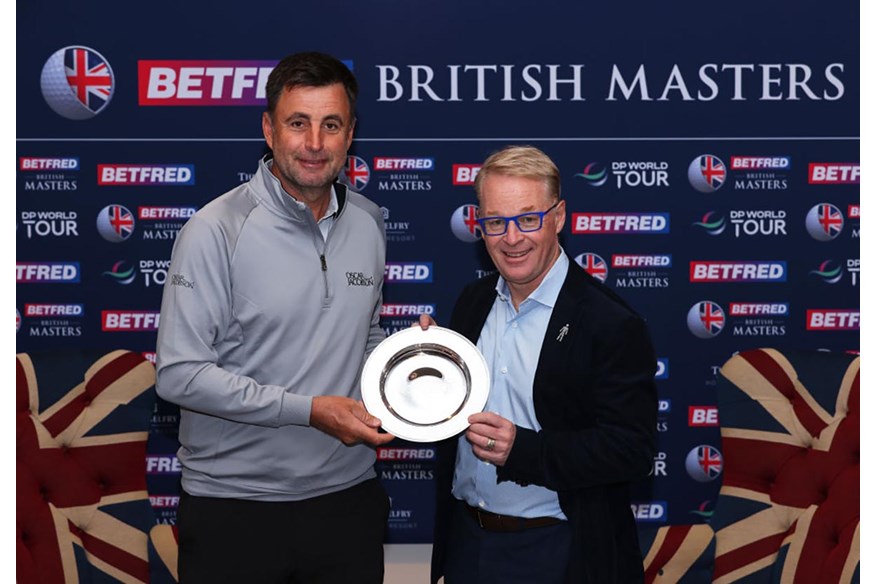
It was still a risk, of course. I still had to play some very good golf because of the people that were also joining; world-class players. But at 49 years old, to play a slightly reduced schedule was a good thing. Three rounds as well. I’m not getting any younger so in that respect, it was win-win for me. And with the team side of it, that was something completely different. Previously, all I had to do was take care of myself. Now, I’ve got three other guys to think about.
Has it helped fill that void of having not played in the Ryder Cup?
In a sense, yeah. When we won in Houston last year, that’s up there as one of the best days I’ve ever had – and I wasn’t even contending in the tournament.
In an interview last year, you said that you only saw yourself playing for another 18 months. Does that mean this is your last year on tour?
I want to retire from the game. I don’t want the game to retire me. I’m hoping I’m good for next year. And as long as I feel like I’m competitive, I’ll keep playing and hopefully that is with LIV. Right now, I don’t actually have anywhere else to play. I’m banned pretty much everywhere else bar LIV! But do I see myself playing competitively five years from now? No, I don’t.
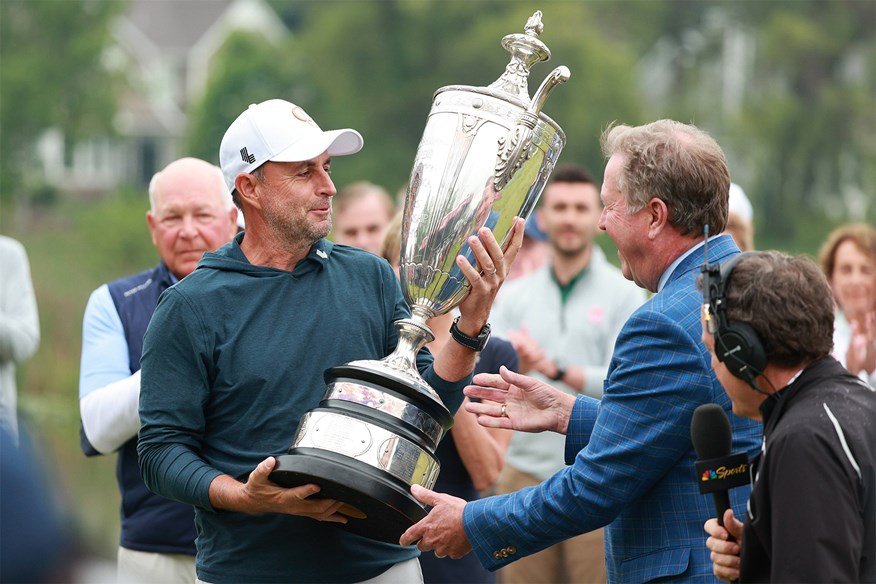
Why not?
Right now, I can’t play the Legends Tour in Europe because of the money that I owe in fines, which I’m not going to pay. But speaking to guys that I know and grew up playing with, that tour is quite tough. You play a lot of pro-ams and while I don’t want this to come across the wrong way, I don’t particularly want to go back to playing tournaments that are worth €300,000. I’m not going to get excited by that. I didn’t get any exemption from the PGA Tour [Champions] for my two senior majors, so I have no status out there.
Would you consider playing out there in the States full time?
No, I wouldn’t. If I could maybe play 10 or 12 for a couple of years, I think I might do that. We’ll see. But my focus is on LIV. I’ve been with the Cleeks pretty much right from the start. And whenever my playing side finishes, I would still like to be involved in some way, just to be around it. It’s a bit like nicotine, isn’t it? You’d need that little bit. My wife tells me I’ll never retire. But I know the end is getting closer.

Do you see yourself playing in the Senior Open?
I would love to have that opportunity to play in front of a home crowd, of course. But even though it’s an R&A event, it’s DP World run, and they say that unless your fines are settled, you can’t play. So there’s myself, Lee [Westwood] and maybe Poults who are all in the same position of not being able to play.
I think the Tour are cutting their nose off to spite their face with that. Whether that changes if DP World are doing anything with PIF, hopefully it will, because I would love to say that I’m a senior British Open champion. That’s kind of pinch yourself stuff.
-
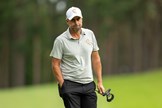 Richard Bland has blasted the DP World Tour for how he has been treated since joining LIV in 2022.
Richard Bland has blasted the DP World Tour for how he has been treated since joining LIV in 2022.
-
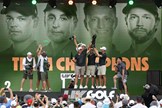 Celebrating a first team victory for the Cleeks GC in 2024.
Celebrating a first team victory for the Cleeks GC in 2024.
-
 Richard Bland has earned more than $18 million in three years on LIV.
Richard Bland has earned more than $18 million in three years on LIV.
-
 Surprisingly, Richard Bland never received a signing-on bonus after joining LIV.
Surprisingly, Richard Bland never received a signing-on bonus after joining LIV.
-

-
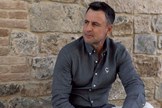 Richard Bland doesn't see himself playing professional in five years' time.
Richard Bland doesn't see himself playing professional in five years' time.
